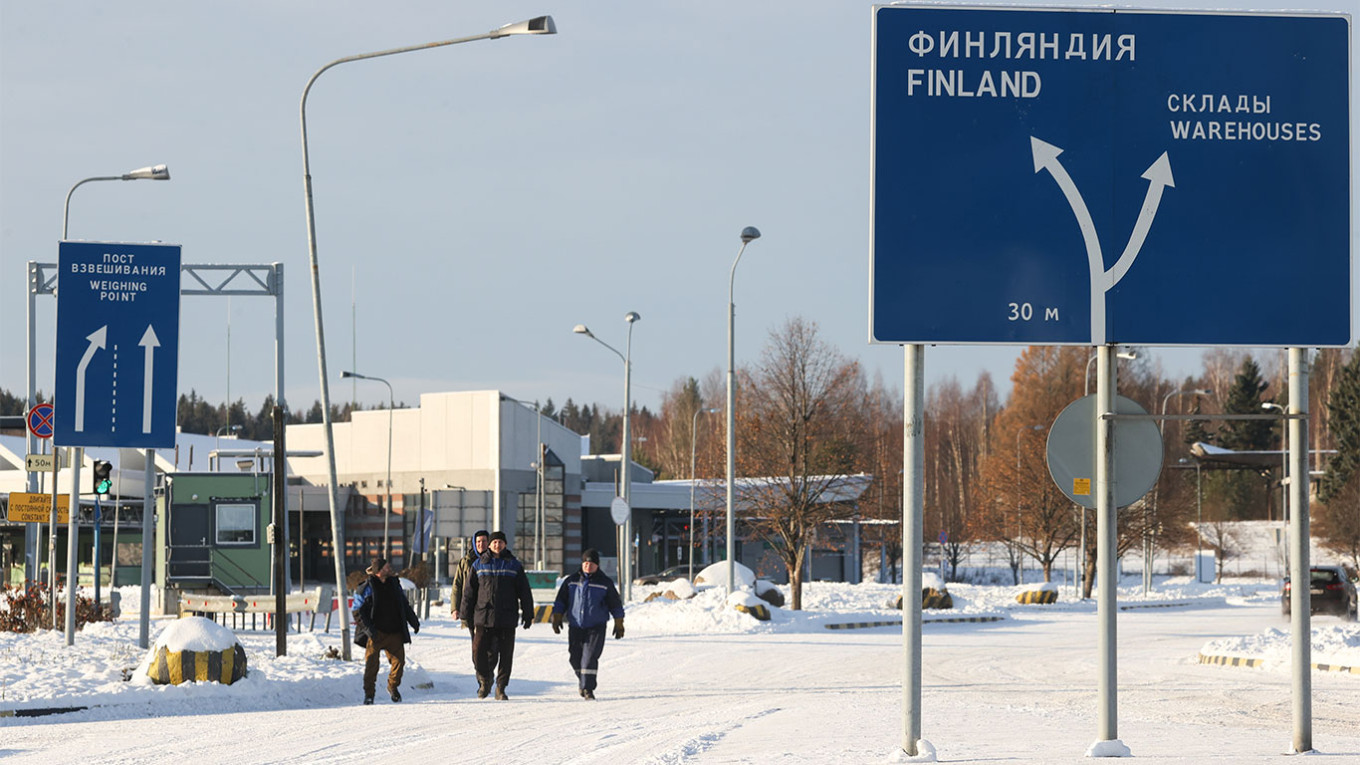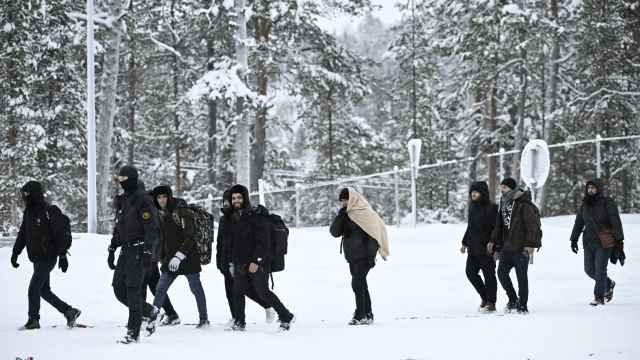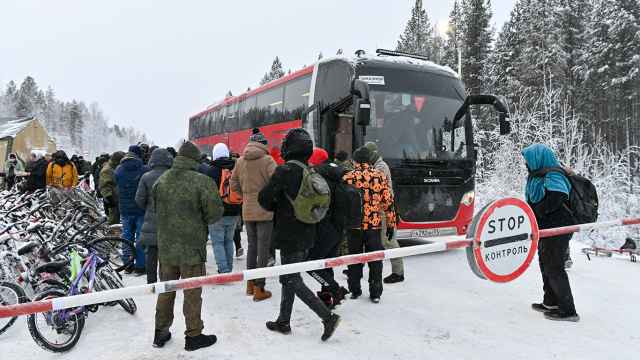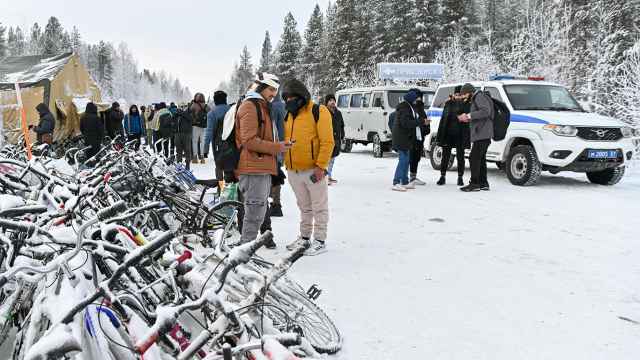Finland on Thursday said it would extend its border closure with Russia "until further notice," after it was shut last year in response to an uptick in asylum seekers.
Finland, which joined the NATO military alliance following Russia's invasion of Ukraine, says the increased flow of asylum seekers has been orchestrated by Russia, a charge that Moscow has denied. The two neighbors share a 1,340-kilometer border.
The Nordic country closed the border in mid-December after nearly 1,000 people had arrived without a visa through its border crossings with Russia since August. Finland has since extended the closure several times, with the last extension set to expire on April 14.
"The decision will remain in force until further notice, but no longer than is necessary," the government said in a statement Thursday.
In addition, "the border crossing points for maritime traffic at Haapasaari, the port of Nuijamaa and Santio will be closed to leisure boating," starting April 15 to prevent the "possibility that instrumentalized migration could expand to maritime traffic."
As of April 15, it will only be possible to apply for asylum at other maritime border crossing points or airports.
Finland's relations with Russia soured after the 2022 invasion of Ukraine. Moscow warned of "countermeasures" after Finland joined the Western defense alliance NATO in April 2023, reversing its decades-long policy of military non-alignment.
In November, Finland initially closed four of its eight border crossings with Russia and shut the rest by the end of the month. Although Helsinki then partially eased the closure, on Dec. 14 it once again decided to close the entire border.
According to Finnish authorities, reopening the border could pose a threat to national security and public order.
"Finnish authorities see this as a long-term situation. We have not seen anything this spring that would lead us to conclude that the situation has changed meaningfully," Interior Minister Mari Rantanen said in a statement. She added that hundreds and possibly thousands of people remain close to Finland's border on the Russian side.
The Finnish government is also preparing a bill that would enable it "to restrict the reception of applications for international protection" in limited areas.
A Message from The Moscow Times:
Dear readers,
We are facing unprecedented challenges. Russia's Prosecutor General's Office has designated The Moscow Times as an "undesirable" organization, criminalizing our work and putting our staff at risk of prosecution. This follows our earlier unjust labeling as a "foreign agent."
These actions are direct attempts to silence independent journalism in Russia. The authorities claim our work "discredits the decisions of the Russian leadership." We see things differently: we strive to provide accurate, unbiased reporting on Russia.
We, the journalists of The Moscow Times, refuse to be silenced. But to continue our work, we need your help.
Your support, no matter how small, makes a world of difference. If you can, please support us monthly starting from just $2. It's quick to set up, and every contribution makes a significant impact.
By supporting The Moscow Times, you're defending open, independent journalism in the face of repression. Thank you for standing with us.
Remind me later.






